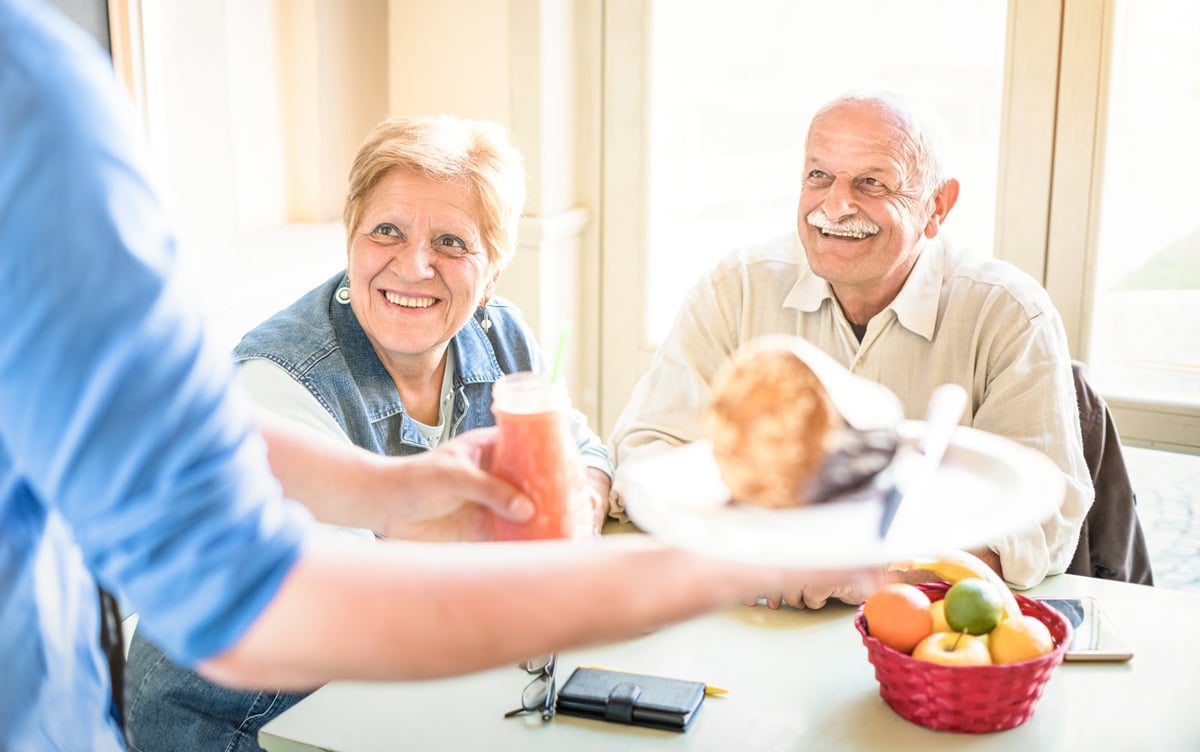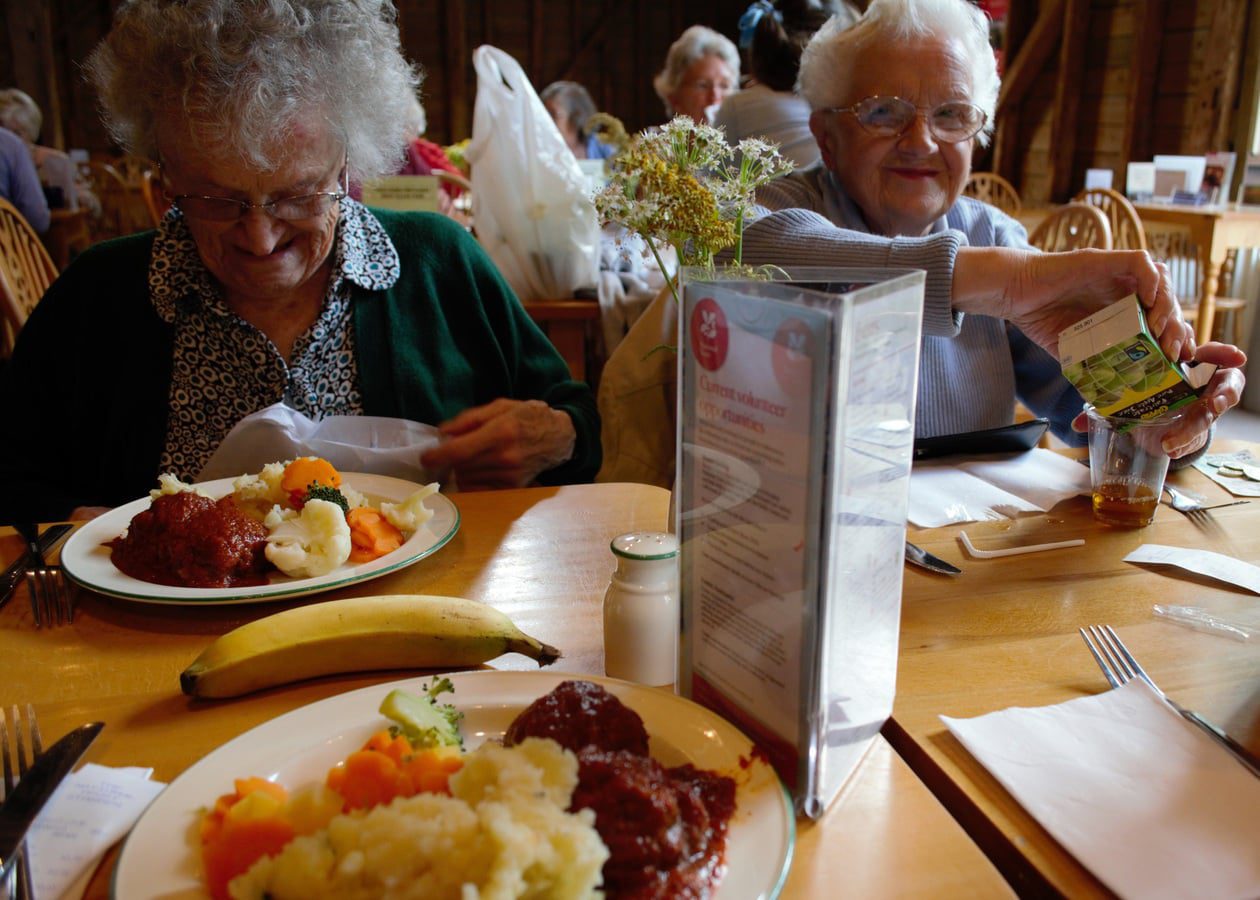You can’t always be there. But we can.
Food Safety at Home: Guidelines for Caregivers

Caring for Elderly Family Members: How to Lay Out a Loving Plan
October 16, 2019Food Safety at Home: Guidelines for Caregivers

When we eat, our stomach acid and immune systems work to destroy the bacteria we consume.
However, because seniors often have lowered immune system functions, they can be more susceptible to the bacteria and viruses present in contaminated food. In addition, lifelong diseases and illnesses can further compromise seniors’ ability to withstand problematic foodborne bacteria.
As a result, it’s crucial to take precautions when cooking, preparing, or serving food to seniors. By practicing food safety for seniors, you can mitigate the threats of contamination and bacteria and help keep your loved ones safe!
How to Be Food Safe & Prevent Foodborne Illness
Thankfully, many of the same principles for food safety at home also apply when serving food to seniors. While you might have to take extra steps and scrutinize food more closely when cooking or serving seniors, it’s worth going the extra distance to protect their health.
- Separate raw meats from other non-raw ingredients when prepping and use separate cooking boards, utensils, pots, pans, etc. to avoid cross-contamination
- Regularly clean kitchen surfaces (countertops, pantry doors, tables, etc.) with a suitably potent cleanser to reduce the presence of bacteria
- Thoroughly wash your hands before, during, and after cooking, handling raw meats, and serving food (especially after coughing or sneezing) to reduce the likelihood of contamination
- Verify food temperatures using a food thermometer to ensure food is thoroughly cooked to a suitable temperature and safe to eat. Many people often overlook this food safety at home technique — don’t make the same mistake!
- Date ingredients and leftovers to ensure foodstuffs remain fresh. Make sure to regularly dispose of expired items. If you suspect leftover food or ingredients are expired, throw them out!
- Wash and scrub fresh produce to remove dirt, bacteria, and contaminants before food prep or cooking
- Monitor freezer and refrigerator temperatures to ensure that they’re set at the correct levels. Sometimes, self-assessed freezer/refrigerator temps can be inaccurate, so check with an internal thermometer to confirm the accuracy of these readings
Food Safety for Seniors: The Risks

With age, we experience a number of bodily changes that can affect our digestive health and necessitate heightened food safety measures at home. Unfortunately, these changes also make the elderly especially susceptible to foodborne illness. Some of them include:
- Weakened stomach acid which can reduce the quality of food digestion
- Slowed movement through the intestinal tract, which increases digestion time
- Decreased efficiency of the kidneys and liver which diminishes our ability to eliminate toxins from food
- Lowered immune system function which jeopardizes our body’s ability to detect and destroy bacteria and pathogens
Because of these complications, the symptoms of foodborne illnesses in seniors can be much more severe. As a result, it’s essential to go the extra mile and practice proper food safety at home when serving seniors — trust us, their stomachs (and hearts) will thank you!
To learn more about our food safety standards for seniors, contact us at 1Heart Caregivers today.

